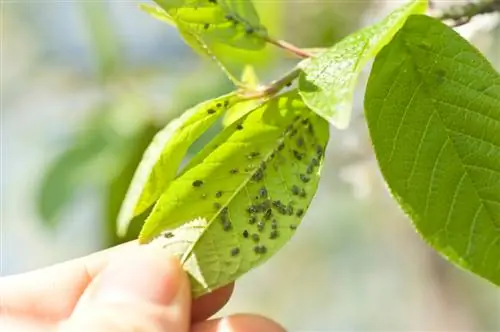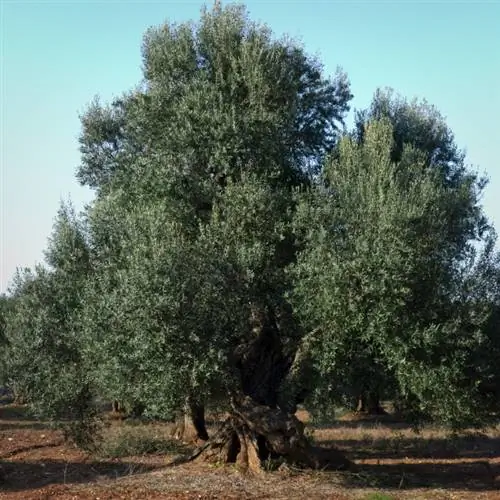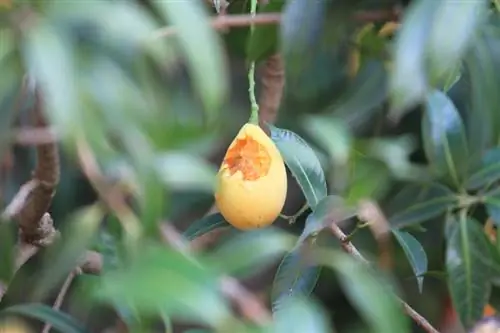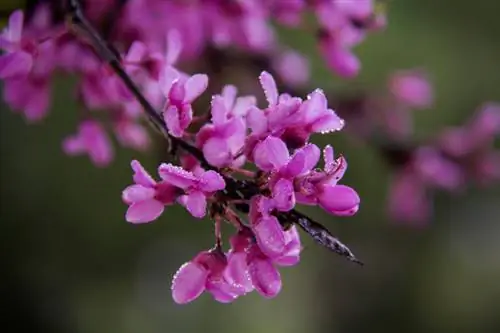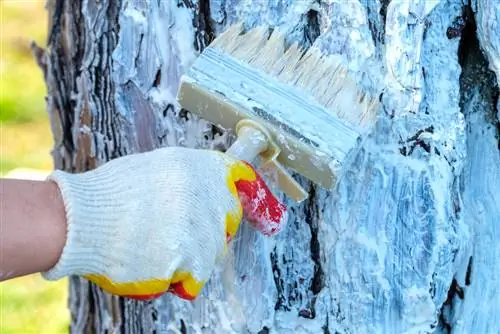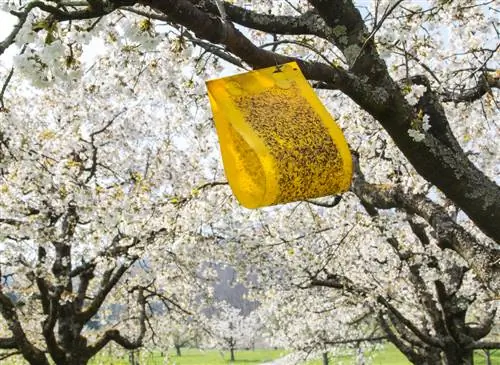- Author admin [email protected].
- Public 2023-12-16 16:46.
- Last modified 2025-06-01 06:02.
One of the common pests of cherry trees is the black cherry aphid. Once the damage has occurred to the cherry trees, it is too late to combat it. Therefore, as a precaution, check the young leaves for aphid nests during flowering.
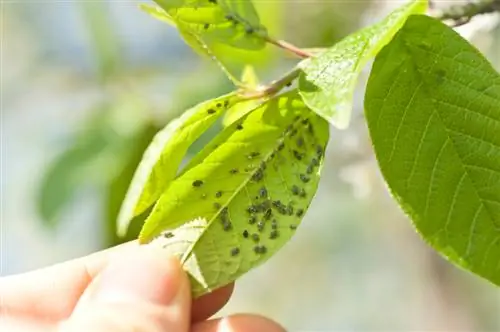
How do you get rid of lice on cherry trees?
To combat cherry tree lice, you should preventatively check the young leaves for aphid nests during flowering, encourage beneficial insects such as May beetles and, if necessary, use sprays that are gentle on beneficial insects before the leaves curl up.
Explanation of terms
Under the name “black cherry aphid” - also known as “black cherry aphid” or simply “cherry aphid” - two species of this species are combined: black sweet cherry aphid (Mycus pruniavium) and black sour cherry aphid (Mycus cerasi). The difference is of little importance to a gardener, as both species attack both sweet and sour cherry trees and undergo largely the same development.
Malicious images
The cherry aphids primarily attack young leaves at the tips of the shoots. The difference lies in the damage caused by the different aphids. While sweet cherry aphids cause the leaves to curl up and the tips of the shoots wither and possibly die, sour cherry aphids infest the new shoots and have a growth-inhibiting effect; the leaves only arch slightly.
The aphids secrete a sugary liquid. The so-called honeydew in conjunction with the sooty mold that forms on it pollutes and sticks together the leaves and fruits. Between mid-May and early June, the aphids migrate to the wild herbs and later return to the cherry trees to lay their eggs. The cherry aphid infestation is particularly difficult on young trees; The older trees usually survive this without major damage.
Combat
When combating aphids, the focus should be on preventative measures. This includes examining the new shoots and leaves during and immediately after flowering. The cockchafers and other insects in the garden fight the aphid colonies in a natural way by destroying the aphids. It is important to protect and promote these beneficial insects. When using sprays, you should choose preparations that are gentle on beneficial insects.
Tips & Tricks
If spraying cannot be avoided, it should be noted that it only makes sense before rolling up the leaves.

